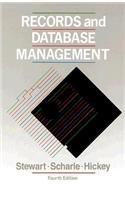Consider the following game. Initially a heap of n matches is placed on the table between two players. Each player in turn may either (a)
Consider the following game. Initially a heap of n matches is placed on the table between two players. Each player in turn may either (a) split any heap on the table into two unequal heaps, or (b) remove one or two matches from any heap on the table. He may not do both. He may only split one heap, and if he chooses to remove two matches, they must both come from the same heap. The player who removes the last match wins.
For example, suppose that during play we arrive at the position (5, 4); that is, there are two heaps on the table, one of 5 matches, the other of 4. The player whose turn it is may move to (4, 3, 2) or (4, 4, 1) by splitting the heap of 5, to (5, 3, 1) by splitting the heap of 4 (but not to (5, 2, 2), since the new heaps must be unequal), or to (4, 4), (4, 3), (5, 3) or (5, 2) by taking one or two matches from either of the heaps.
Sketch the graph of the game for n = 5. If both play correctly, does the first or the second player win?
Step by Step Solution
There are 3 Steps involved in it
Step: 1

See step-by-step solutions with expert insights and AI powered tools for academic success
Step: 2

Step: 3

Ace Your Homework with AI
Get the answers you need in no time with our AI-driven, step-by-step assistance
Get Started


